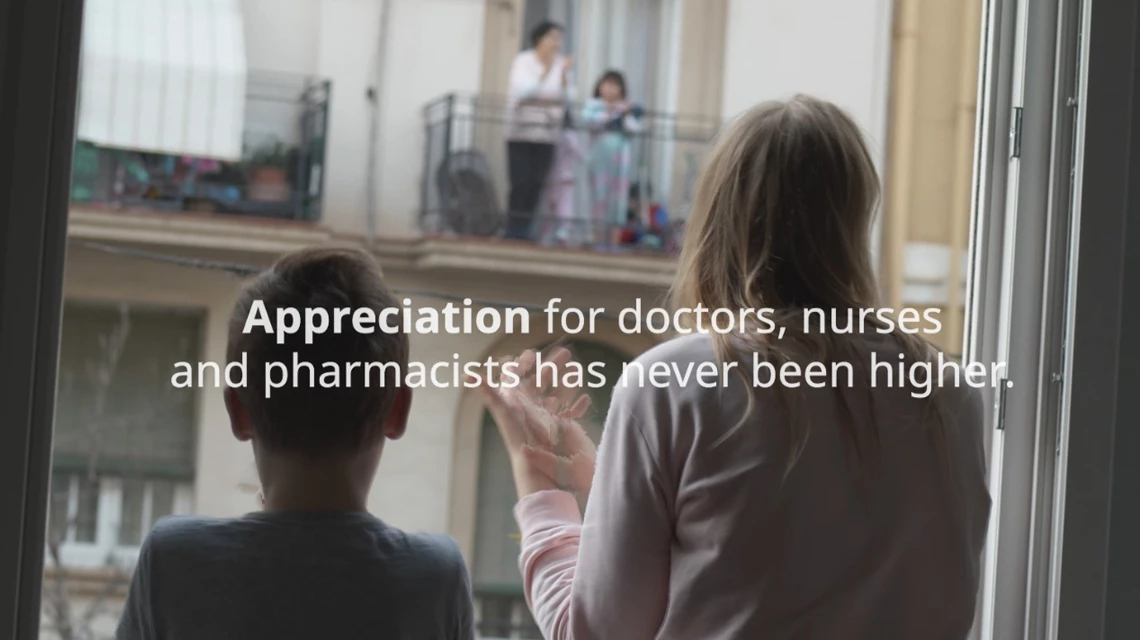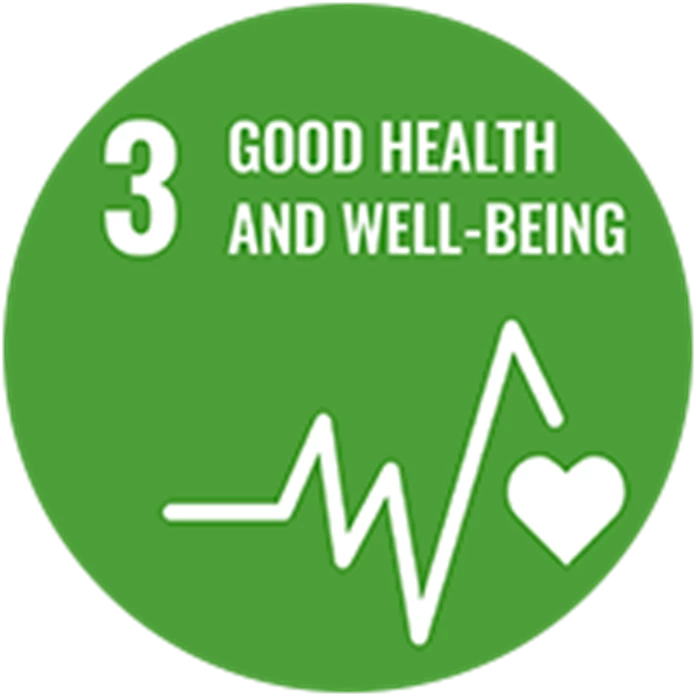Select your country
Websites worldwide
Select a country to go to the website of the respective STADA sales company.
Australia (1)
Austria (1)
Belarus (1)
Belgium (1)
Bosnia-Herzegovina (1)
Bulgaria (1)
China (1)
Croatia (1)
Czech Republic (2)
Denmark (1)
France (1)
Hungary (1)
Ireland (1)
Italy (1)
Montenegro (1)
Netherlands (2)
Poland (1)
Portugal (1)
Romania (1)
Serbia (1)
Slovakia (1)
Slovenia (1)
Spain (1)
Switzerland (1)
Thailand (1)
The Phillippines (1)
United Kingdom (3)
Vietnam (2)
Year after year, the STADA Health Report has explored questions that concern people in connection with their health.
It was thus only natural that in 2021, we should address the monumental and complex topic that is the Corona pandemic. In the previous Health Report, we followed up the main survey with an additional round of questions after the outbreak of the virus to capture the mood at the beginning of the crisis. Now, one year later and together with 30,000 Europeans, we look back on one year of Covid and ask: What has the crisis done to us? How has this exceptional situation affected our mental health? Who has made a special contribution to helping us overcome the crisis little by little – to this day? How have our health systems fared? Do we now have a newfound appreciation for our health and are we willing to invest more in it? Summing up we can say: The atmosphere is cautiously optimistic.
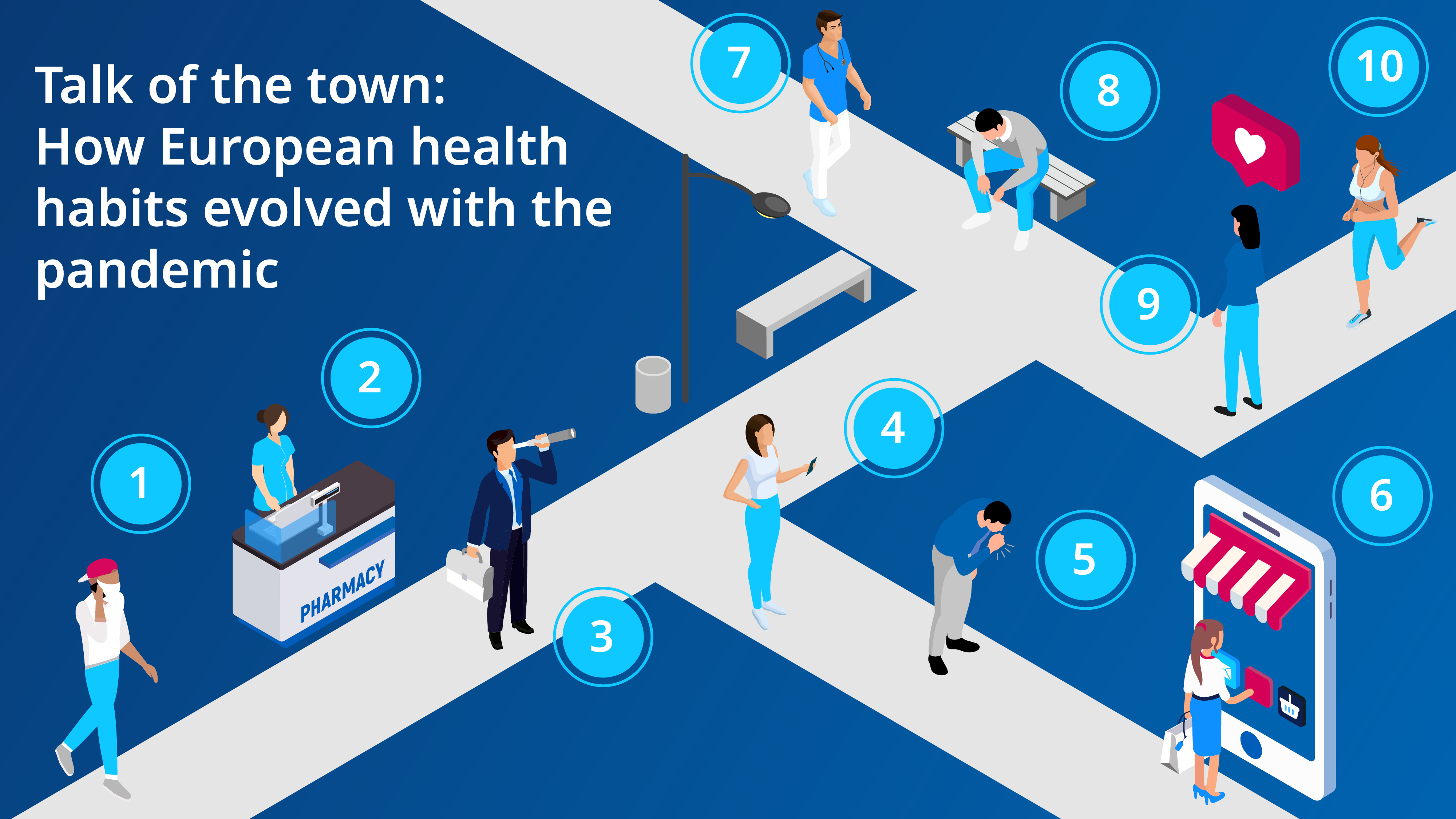
Trust
If Covid has taught us one thing, it is this: A well-functioning healthcare system and the people who keep it running are the backbone of our society. It thus comes as no surprise that 81 % of Europeans consider front-line workers in hospitals the main contributors in overcoming the pandemic. The experiences that were made during Covid changed our perspective on many things: Paradoxically, it also led many Europeans to reconsider their opinion on new-age ways of treatment within the healthcare sector. We also learned: When it comes to matters of health, Europe’s trust is not easily earned – but quickly lost.

A crisis of trust? Europeans count on conventional medicine and healthcare systems – mostly
- 71 % of Europeans remain satisfied with their healthcare system
- Doctors and nurses named most important actors in dealing with Covid (81 %)
- Politicians deemed less trustworthy than pharmaceutical companies
- Approval of remote treatment via webcam on the decline – despite Covid
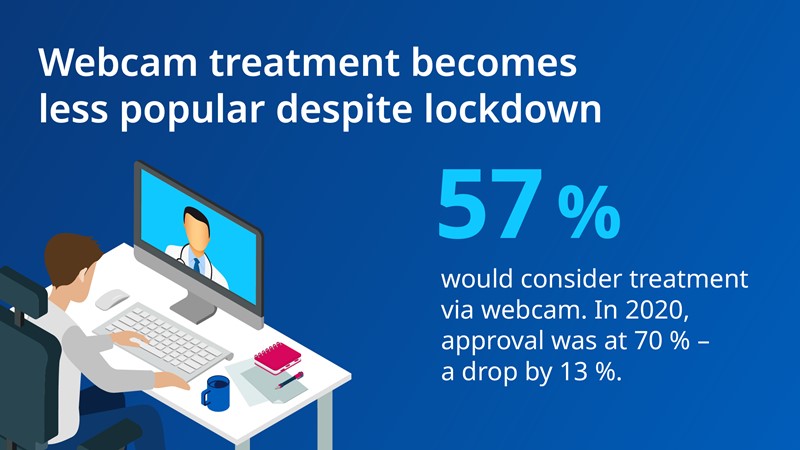
No other event in recent world history has changed our lives as fundamentally as the Covid pandemic. Seemingly overnight, everything changed. When Europe went into lockdown, its population went into a combination of hibernation and survival mode, stepping back to make room for the people in charge: especially for front-line workers, who were charged primarily to get us back on track. Without a doubt, there is much to come to terms with in the aftermath of the pandemic. Not only the lives to be mourned, but also how the situation was dealt with in general. Covid has left its mark on Europeans, so much is clear. But how will we come out on the other side of this? What have we learned? Who will we trust? Who has some catching up to do after the pandemic, and what does this mean for our future?
Mental Health
Covid has taken quite a toll on Europeans: From endless lockdowns, contact and movement restrictions, or the constant fear that you or a loved one will fall ill with the virus, to working from home whilst looking after children (and oneself), and getting on with life despite it all while generally attempting to hold it together. The result after one year of Corona: 1 in 4 Europeans feel extremely stressed, so much that they struggle to unwind. 1 in 3 are experiencing increased levels of anxiety due to the pandemic. Everything is not ok.
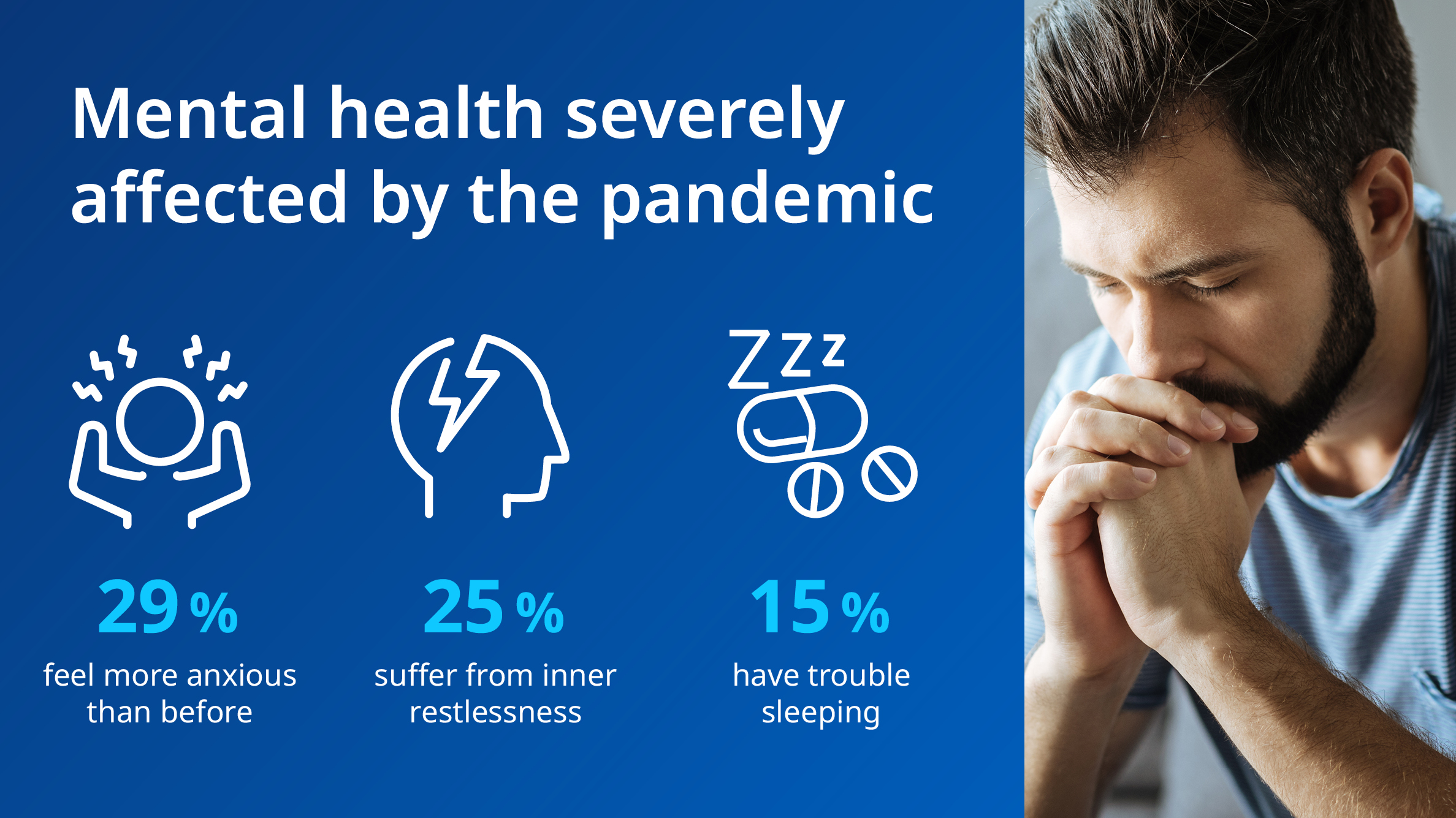
The monster at our doorstep: How COVID-19 has affected our mental health
- Almost 1 in 3 Europeans report increased levels of anxiety due to the pandemic
- Inner restlessness and stress affect 1 in 4 Europeans, 15 % have trouble sleeping
- Self-assessed percentage of Europeans at risk of burnout remains high at 54 percent
- Europeans are less bothered by the possibility of contracting COVID-19 than being unable to meet with family and friends
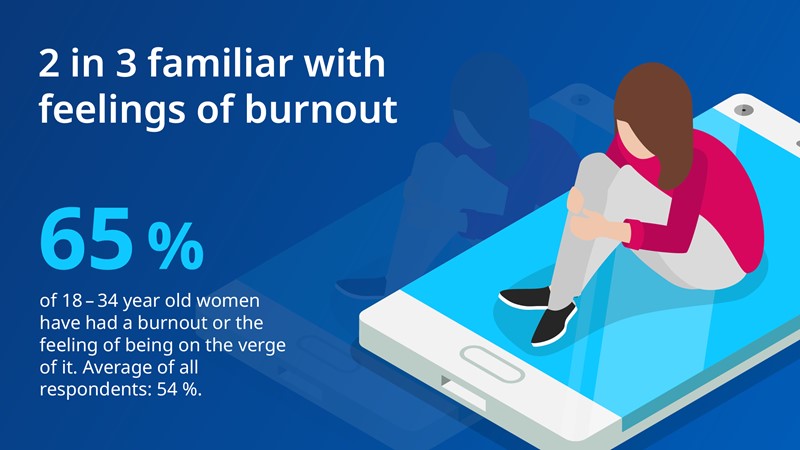
The challenges the last few months held for Europeans were manifold. But even amid hundreds of thousands of COVID-19 induced casualties across the continent, daily life went on: granted, in a fundamentally different way. In addition to newly required organisational skills to reconcile round the clock childcare with a 9 to 5 job, the danger of being infected with the virus loomed seemingly everywhere. Measures taken to prevent the further spread of COVID-19 caused families and friends to be separated for long periods of time, leaving many to feel lonely and isolated, exacerbating existing mental health issues and undoubtedly breeding new ones. What did Europeans worry about most during these trying times? What helped them to stay strong? Are we already on the verge of a new pandemic, namely that of mental health issues?
Medicine
Wearing a face covering, keeping a distance, washing and disinfecting our hands regularly. These basic precautionary measures have long become second nature to us. Covid has forced us to change our habits in many ways – but will the new ones we made stick around? This seems likely: 1 in 5 Europeans plan on wearing face masks post Covid, 1 in 3 will continue to adhere to the recommended minimum distance. With most of everyday life having taken place at home, who did Europeans turn to for health advice in times of Covid? And where did they prefer to buy their medication during the pandemic?
Stay home, stay healthy: Has Covid changed our health habits for good?
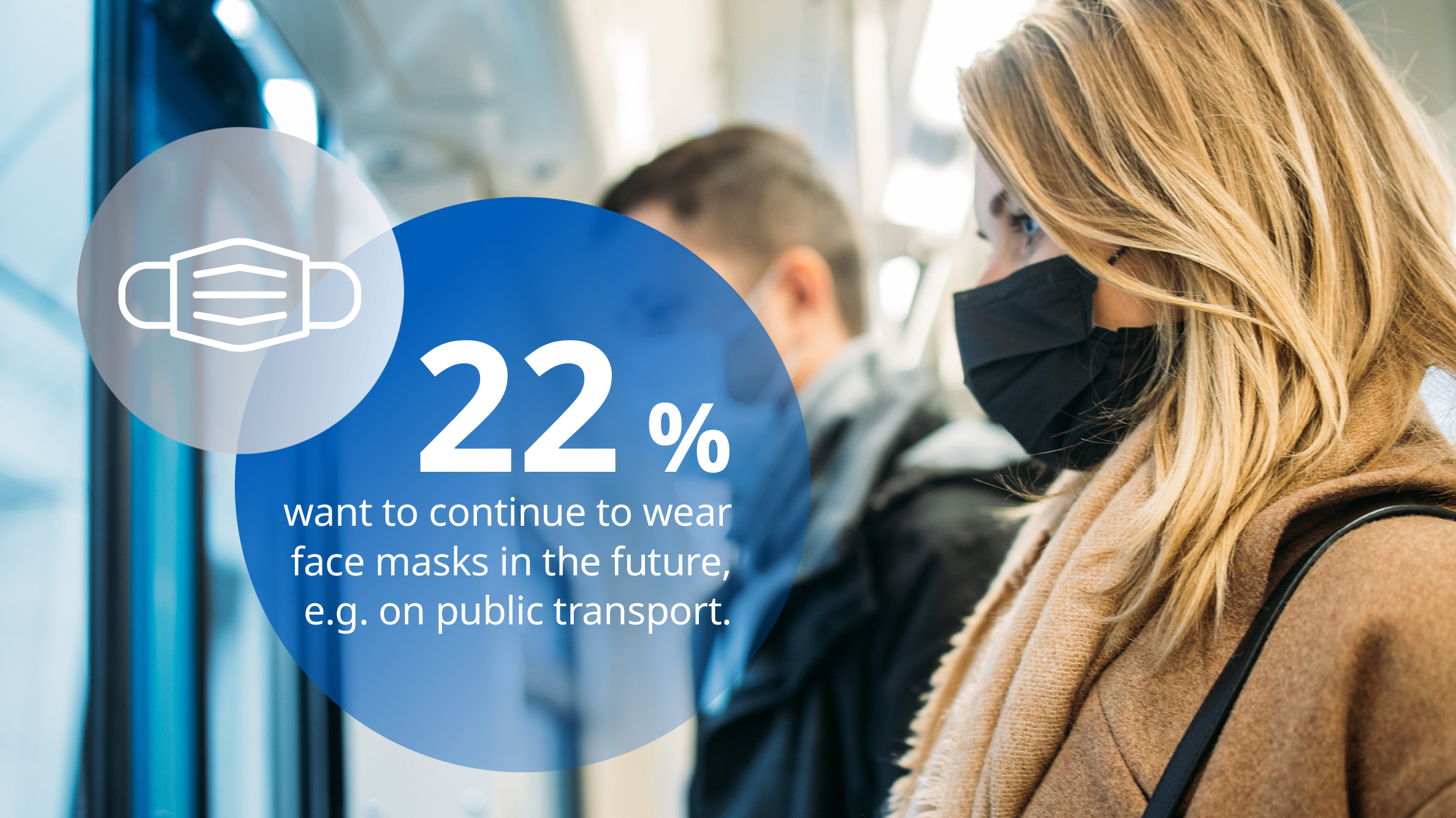
- Community pharmacies still most popular place to buy medication for 43 % of Europeans
- 22 % of Europeans plan to continue wearing a face mask post Covid
- 45 % of Europeans paid more attention to healthy eating during the pandemic
- Brand name more important to Europeans than environmental factors when purchasing medicine and food supplements
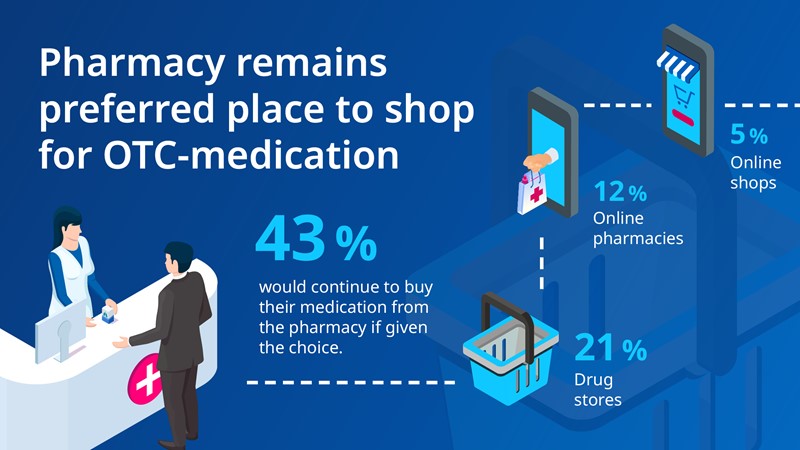
With most of social life on hold for months on end, Covid has given us ample opportunity to take a step back and evaluate our current routines with regard to their health benefits. It seems that some of the habits that were created during the pandemic – whether self-induced or imposed by the government – are either unlikely to be abandoned completely post Covid or will have at least helped some Europeans make it through these difficult months. What did Europeans change during the pandemic, and which of those changes are likely to persist?
Health Report in 60 seconds
Study Design
30,000 respondents, 15 countries, 34 questions: The STADA Health Report 2021 is the most extensive health study yet. Carried out during one of the strangest and most turbulent times in recent history, we wanted to check in with the people of Europe and find out: What has weighed on their minds during the pandemic? Who do they trust when it comes to matters of health? Have their attitudes towards health and healthy living changed due to Covid?
In cooperation with the market research company Kantar we conducted the online survey from mid-March until mid-April 2021. Around 2,000 people between the ages of 18 and 99 were included in the study per country – as always, representative of the characteristics gender, region and age. The previous Health Report, published in June 2020, was based on findings from an online survey carried out from February to March 2020, prior to the outbreak of Covid in Europe. A special survey was later carried out in five participating countries in April of 2020, providing the data for a special Covid chapter in the 2020 Health Report.
Learn more about the study design and methodology of the STADA Health Report 2021:















